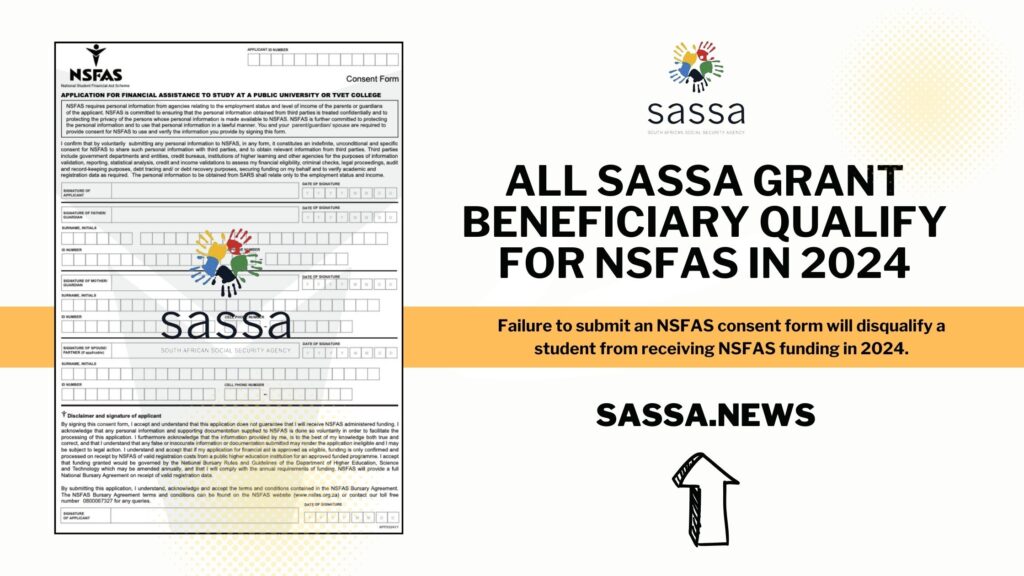60% Of 2023 Matrics Were Sassa Grant Beneficiaries
Social Development Minister Lindiwe Zulu has commended Grade 12 learners benefiting from social development services who successfully completed the 2023 National Senior Certificate (NSC) exams. The 2023 NSC results were released last week.
Among the 897,775 Grade 12 learners who participated in the 2024 matric exams, 543,786 were social grant beneficiaries. It was also revealed that 62 of them ranked among the top performing learners in the country.
Social grant beneficiaries constituted the largest group taking the NSC, with an 82.9% overall pass rate. Of these, 202,156 achieved a Bachelor’s pass which means they qualify to pursue a degree at university. It was also revealed that 160,326 learners earned distinctions.
Child support grants were the most common grant provided to learners writing the NSC exams. The majority of these grants were distributed in KwaZulu-Natal, the second-best performing province when expressed as a percentage.
Child Support Grant aims to cover the basic needs of children whose parents or guardians are not able to because of their financial circumstances. This includes ensuing children can attend school.
The constitution obligates the state to support children in conflict with the law, with 1,630 such children registering for the 2023 NSC.
The South African Constitution, through the Child Justice Act, also obligates the state to provide care and support services to children in conflict with the law, including educational opportunities.
Minister Zulu highlighted the importance of education in rehabilitating these children, aligning with the UN Convention on the Rights of the Child.
The Social Development sector integrated administrative data systems to enhance the coordination and tracking of health and education outcomes.
Providing educational opportunities for children in conflict with the law is a key element of rehabilitating and reintegrating them back into society. The United Nations Convention on the Rights of the Child (the CRC), which South Africa ratified in 1995, recognises the importance of education for children in conflict with the law,”
Zulu further spoke about the linking of data systems between departments, including Social Development, SASSA, the Department of Basic Education, and the National Student Financial Aid Scheme (NSFAS), which has facilitated the sharing of information on academic performance.
They believe that the successful collaboration between Social Development and NSFAS, which exempts grant beneficiaries from means testing when applying for NSFAS bursaries, promotes higher education opportunities.
Zulu emphasised education as a tool to break the cycle of poverty, with many social grant beneficiaries creating better futures through higher education. They added that the government’s pro-poor policies, including social assistance programmes and educational initiatives, have significantly reduced poverty over the past 30 years.


